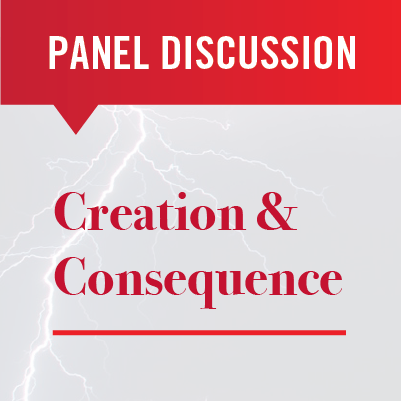
Frankenstein 200 Panel Discussion: “Creation and Consequence”
Tuesday, October 17, 2017 | 6:30 p.m.
Danforth Conference Room, Cohon University Center
Free to attend. Pre-registration requested.
In recognition of the 200th anniversary of the publication of Mary Shelley’s Frankenstein, the Carnegie Mellon University Libraries is planning a series of events inspired by the themes of this important work. Join us for our first event, Frankenstein 200 Panel Discussion: “Creation and Consequence.”
Two hundred years ago, Mary Shelley introduced the ill-fated scientist Victor Frankenstein and his unnamed creation. Although many critics focus on Frankenstein as a figure of hubris, working against the will of gods and natural law, he can also be considered in terms of his obsession: the quest is to create life, without thought for the results or consequences. For Frankenstein, those consequences came in the form on attacks on his family and friends as his creation turned on its creator, something that Isaac Asimov went on to describe as the “Frankenstein Complex.” Since the coining of that term, this theme has remained prevalent in popular culture, from "2001: A Space Odyssey," to the "Terminator" franchise, and most recently HBO’s "Westworld." It is also alive in public discourse thanks to Elon Musk and others who fear the advent of artificial intelligence.
At this event, a panel of scholars from across Carnegie Mellon University will examine the relevance of Shelley’s novel today, particularly how it helps frame the responsibility of investigators to consider the consequences of artificial intelligence and a technologically-augmented human society.
Presented by the University Libraries in collaboration with the Alumni Association’s CMUThink program.
Panelists:
- Jeffrey Bigham, Associate Professor, Human-Computer Interaction and Language Technologies Institutes, School of Computer Science
- David Danks, L. L. Thurstone Professor of Philosophy & Psychology, and Head of the Department of Philosophy, Dietrich College of Humanities and Social Sciences
- Barry Luokkala, Teaching Professor and Director of Undergraduate Physics Laboratories, Department of Physics, Mellon College of Science
Moderator:
- Rikk Mulligan, Digital Scholarship Strategist
Read more about the panelists.
